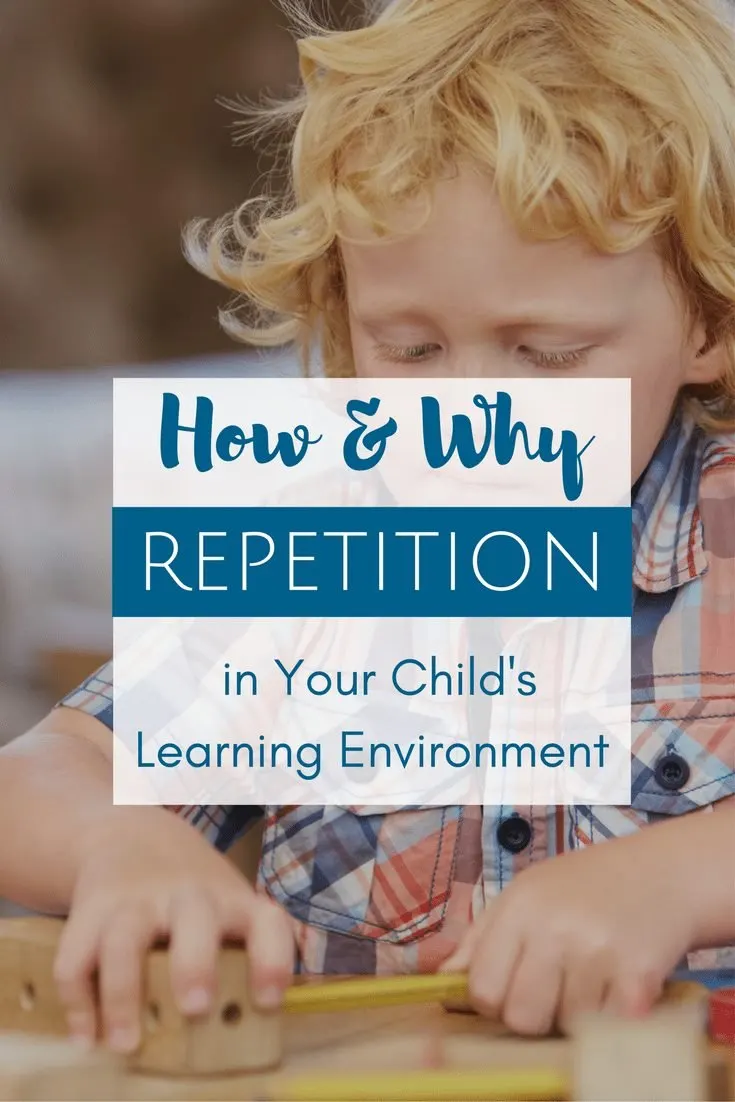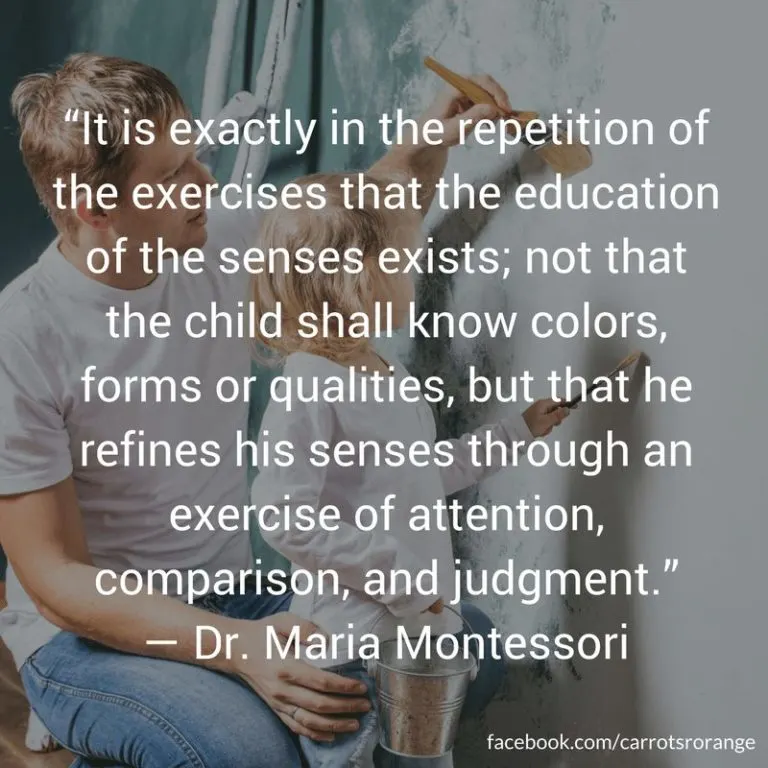‘Maybe, just maybe, if you waited a moment, the child would dump the puzzle over and do it again. Maybe if you paused and observed the child instead of interrupting the work, or even giving a “great work!” you allow the child to own that experience and perfect his work.
Praising might send a confusing message to the child. He might think, “Wait a moment. Am I doing this work for you?”‘ This post gives you an overview of repetition within the context of child development and the Montessori theory.
My Latest Videos
Repetition & Child Development in a Montessori
Those words struck me on many levels. I always understood the importance of repetition but had never dug deeply into importance. A child doesn’t simply repeat an exercise over and over again for repetition sake. A child repeats to perfect, the reinforce a skill, and to internalize the skill in order to garner the deeper significance of the skill – synthesis, problem-solving, and analysis, for example.

Why Repetition is Good in Child Development
Intervening in a Child’s Work
Adults should pause, count to ten, whatever the tactic, before intervening in a child’s work, play, conflict, or otherwise. If we’re doing our job then the child knows what he needs to do but merely needs to perfect it.
{Related Post: “Questions to Ask Before Intervening” if you need a few ideas on how to avoid “solving the child’s problem”.}
Why Does My Child Repeat an Activity?
The idea of what repetition means within the context of brain development is fascinating. There is much more to repetition simply to master an activity or task. There is the reinforcement of the skill and the increased opportunity to succeed as the child continues to practice the work.
Furthermore, the child is able to discern small changes in approach that make or break the exercise. If one approach doesn’t work for the child, she will adjust slightly and try another. This is one reason the control of error within Montessori materials so critical.

The Definition of Repetition
Repetition does not mean doing the SAME task again and again but instead practicing the same skill over and over. You can see why variations and extensions play such an important role in the early childhood classroom.
Other Not So Obvious Forms of Repetition
Repetition comes in many forms, not simply the child doing the work himself. A child in a Montessori environment will observe other children doing a work and give lessons to another, often younger, child. Each of these behaviors reinforces the skill.
“Repetition is the secret of perfection” – Dr. Maria Montessori, The Discovery of the Child
Repetition refines the senses, encourages focus, breeds independence, and develop confidence in our work and ourselves. Only when the child is given the opportunity to repeat the activity with intense interest will he enter into a sensitive period, or move onto the next one.
